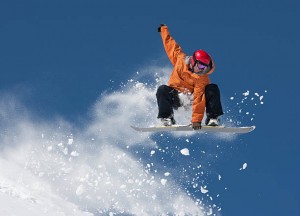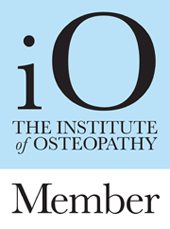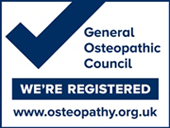Osteopathy & skiing / snowboarding

With Christmas out of the way, those of a certain persuasion shift their minds to the mountains and hurtling down them strapped to either a board or two planks. Yes, the ski season is well underway and with that comes the associated injury risk of winter sports. So, are you ready? We don’t just mean prepared with a shiny new jacket and goggles! Is your body prepped for snowboarding and skiing ‘extreme sport’ shenanigans?
First and foremost, we emphasise to our patients that they must try to have reasonable level of general fitness. After all, fatigue and tiredness can lead to poor technique and lapses in concentration, which even at low speed can lead to accidents. If you are out of shape, it is advisable to choose an easier run until you at least get accustomed to the demands of the terrain before tackling more challenging routes.
Common injuries
The most common injuries associated with snowboarding and skiing are falling over and collisions with others, followed by ski lift incidents.
Skiers are predominantly at risk of knee injuries (in particular damage to knee ligaments typically occurring during a slow, twisting fall or resulting from a sustained snow-plough position) and fractures. Some skiers may fall backwards with a rotating force through their lower leg … ouch!
Snowboarders are open to different injury risks because both legs are strapped in a fixed position to the same board. Generally, falls are forwards or backwards, causing sprains, fractures and/or dislocation to their wrists, collarbone, shoulders and injuries to the head and neck region.
Lest we forget the general risks of being on a very cold mountain covered in snow – hypothermia, dehydration, snow immersion, avalanches, falls from a height, head injuries, frostbite and altitude sickness.
A winter holiday is great fun and these risks should not deter you from going and enjoying your time. Use these tips to be better-prepared and stay injury free.
Useful tips
10 important tips for staying safe on the mountain:
- Wear multiple, breathable layers that can insulate your body and be removed as needed
- Warm up cold muscles with some light exercise or stretching
- Keep hydrated by taking frequent water breaks
- Keep appropriately fuelled with good meals and always carry snacks
- Don’t push yourself for “one last run” when you are already tired – this is when accidents can easily happen
- If you do get injured, follow the P.R.I.C.E protocol (protection, rest, ice, compression and elevation)
- Use a local registered guide for any off piste skiing/snowboarding
- Always wear a helmet
- Never be too proud to have a lesson – skills can always be improved!
- Look out for others!
But it’s not all doom and gloom. Wearing a helmet and being physically prepared for your trip can significantly reduce your risk of injury. There are many benefits to a winter holiday including physical exercise, clean/clear air, general wellbeing and of course a little apres-ski too!
Please feel free to contact us for more information on winter sports, your preparation, injury prevention, injury advice and/or treatment: 01525 290615 / www.woburnosteopaths.co.uk/contact/.


